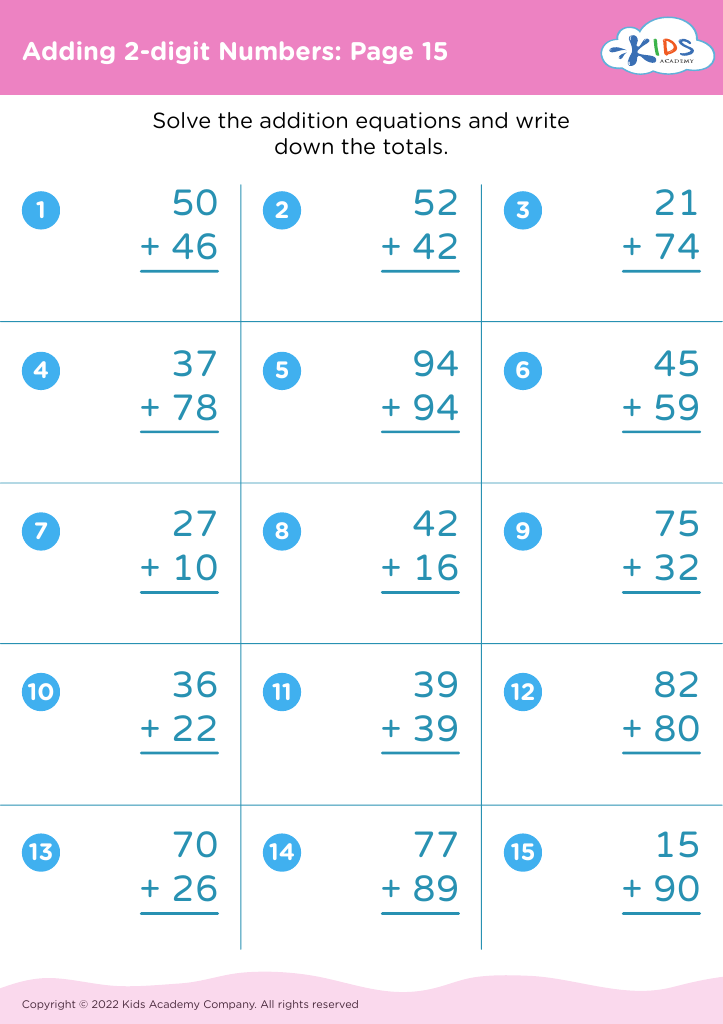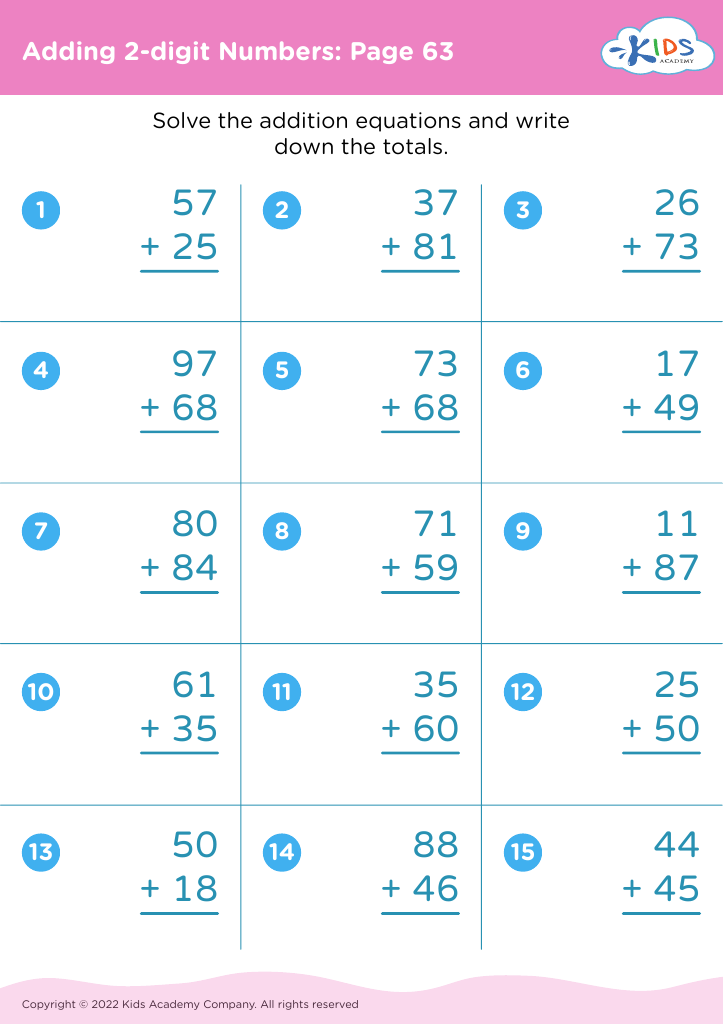Basic Math Skills Adding 2-digit Numbers Worksheets for Ages 6-7
3 filtered results
-
From - To
Explore our "Basic Math Skills Adding 2-Digit Numbers Worksheets," tailored for ages 6-7! Designed to enhance arithmetic abilities, these engaging worksheets help first-graders easily manage sums up to 100. Through fun exercises and problems, children will develop essential skills in addition, mental math, and logical reasoning. Perfect for classroom or home practice, our worksheets are created by educational experts to provide a strong foundation in mathematics. Make math fun and accessible with Kids Academy! Accessible resources and vibrant designs ensure that young learners stay motivated and confident in their mathematical journey. Download now and start adding with ease!
Parents and teachers should prioritize developing basic math skills, particularly adding 2-digit numbers, for children aged 6-7 because these skills form the foundation for all future math learning. At this age, kids are transitioning from simple, single-digit arithmetic to more complex concepts that require an understanding of place value and mathematical operations.
Mastering the addition of 2-digit numbers involves more than just memorizing facts; it helps children develop critical thinking and problem-solving skills. By engaging in this activity, they learn how numbers work together, which is fundamental for tackling more advanced math topics in later grades. It builds their confidence and allows them to approach mathematical problems with a positive mindset.
Moreover, proficient computation skills enhance everyday activities, such as understanding money, time management, and even following recipes. It also indirectly boosts skills in other academic areas like reading and writing, as many tasks require a fine sense of numerical order and sequence.
Involving parents and teachers in this vital phase ensures that children receive the encouragement and guidance they need. Structure, support, and patience from adults make learning interactive and enjoyable, setting kids up for a lifetime of mathematical success and broader academic achievement.




















